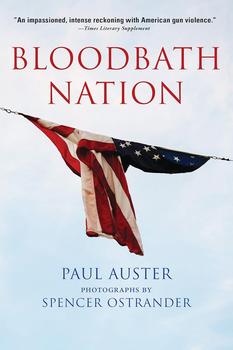Summary | Excerpt | Reviews | Beyond the Book | Readalikes | Genres & Themes | Author Bio

Those two jolts occurred during my first ten or twelve days on the ship, I kept a polite distance between myself and Lamar for several days after that, and then he came to me one afternoon as we were nearing a port and said good-bye. The chief engineer didn't like his work, he said, and he had been given the boot.
Earlier, he had told me that he had gone through a rigorous training course and had passed a written exam to qualify as an oiler, but it turned out that Lamar had cheated on the exam and knew as much about being an oiler as I did. As the chief engineer later put it to me: "That little son-of-a-bitch could have blown up the tanker and every living soul on board, so I kicked his sorry ass out of here."
So much for my departed comrade, my onetime pal. Not just a bottle-throwing racist, not just a dangerous fraud, but a hollowed-out psychopath who thought nothing about pointing his rifle at anonymous strangers and shooting at them for no other reason than the kick of it, the pleasure of it. Put a gun in the hands of a maniac, and anything can happen. We all know that, but when the maniac appears to be a levelheaded, ordinary fellow with no chip on his shoulder or apparent grudge against the world, what are we to think and how are we supposed to act? To my knowledge, no one has ever provided a satisfactory answer to this question.
Billy was a different sort of animal—tame, sweet-tempered, and young, just eighteen or nineteen, by far the youngest member of the crew. I was the second youngest, but next to the blond, smooth-faced Billy, I felt positively old. A pleasant kid from a small rural town in Louisiana, he talked mostly about his passion for souped-up cars and hunting deer with his father, whom he referred to as "Daddy" and "my daddy." We went ashore together a couple of times with the forty-year-old Martinez, a family man from Texas, but apart from liking Billy and promising to go hunting with him one day if and when I happened to find myself in Louisiana, I didn't know him well. None of that is of any importance now.
Fifty years later, what counts is that on one of our stops in Tampa, we left the ship with Martinez, and as the three of us waited for a taxi to pick us up and drive us into town, Billy made a collect call home from the pay phone on the dock. He talked to his father or mother for what seemed to be an inordinate length of time, and after he hung up, he turned to us with a troubled look on his face and said: "My brother's been arrested. He shot someone in a bar last night, and now he's locked up in the county jail."
There was nothing more than that. No word on why his brother had shot that someone, no word on whether that someone was alive or dead, and if alive whether he was badly wounded or not. Just the bare bones of it: Billy's brother had shot someone, and now he was in jail.
With nothing more to go on than that, I can only speculate. If Billy's older brother was anything like Billy himself, that is, a good-natured, reasonably balanced, functioning human being and not some trigger-happy nutjob like Lamar, there is every chance that the shooting of the previous night was caused by an argument, perhaps with an old friend, perhaps with a stranger, and that the disinhibiting effects of alcohol played a decisive part in the story as well. One beer too many, and a verbal dispute suddenly and unexpectedly explodes into a punching match.
Such things happen every night in bars, pubs, and cafés all across the world, but the bloody noses and aching jaws that generally follow from these dustups in Canada, Norway, or France often turn out to be gunshot wounds in the United States. The numbers are both stark and instructive. Americans are twenty-five times more likely to be shot than their counterparts in other wealthy, so-called advanced countries, and with less than half the population of those two dozen other countries combined, eighty-two percent of all gun deaths take place here. The difference is so large, so striking, so disproportionate to what goes on elsewhere, that one must ask why. Why is America so different—and what makes us the most violent country in the Western world?
Excerpted from Bloodbath Nation by Paul Auster and Spencer Ostrander. Copyright © 2023. Reprinted with permission of the publisher, Grove Press, an imprint of Grove Atlantic, Inc. All rights reserved.
Your guide toexceptional books
BookBrowse seeks out and recommends the best in contemporary fiction and nonfiction—books that not only engage and entertain but also deepen our understanding of ourselves and the world around us.